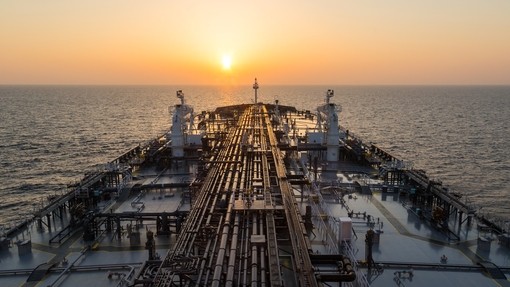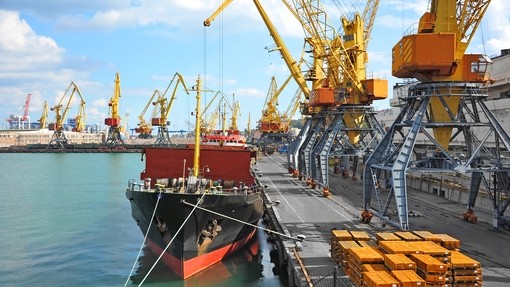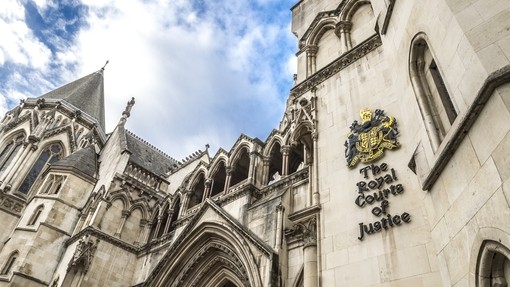Security for costs

Details
In the case of SARPD-Oil International Ltd -v- Addax Energy SA and Glencore Energy UK Ltd [2016], this week the Court of Appeal has handed down an important judgment on security for costs, a valuable weapon in a defendant’s armoury when facing a claim brought by a non-EU or EFTA company. Hill Dickinson acted for the defendant.
By way of brief reminder, a defendant may seek security for its legal costs of defending an English court action from a claimant company resident outside the EU and EFTA where ‘there is reason to believe that it will be unable to pay the defendant’s costs if ordered to do so’ (CPR 25.13(2)). That security is ordinarily in the form of a bank guarantee but can also be satisfied by a payment of money into court.
Facts
The claimant SARPD is a BVI-based company. It bought a cargo of gasoil from Addax Energy, a Swiss company, which in turn bought that cargo from Glencore Energy, a UK company.
SARPD alleged the cargo did not meet contractual specifications and commenced High Court proceedings against Addax. In turn Addax brought a Part 20 claim (i.e. third party claim) against its seller Glencore.
During the proceedings Addax wrote to SARPD requesting security for costs on the basis that SARPD was a company outside the EU and EFTA. Addax relied upon the costs budgets which all three parties had filed at court prior to the case management conference (CMC) in formulating the quantum of its claim for security for costs. Addax sought to secure both its own costs and the costs of Glencore in the event that Addax successfully defended SARPD’s claim but would then be liable to its seller Glencore in the third party action.
SARPD chose not to provide any financial information to Addax even when faced with an application to the court for security for costs.
At first instance, Mr Justice Andrew Smith sitting in the Commercial Court held that SARPD had chosen to be reticent regarding its financial position. He said that the reason for SARPD’s reticence was that it would benefit in settlement negotiations from Addax’s doubt about whether it would recover its costs even if Addax defeated the claim. But that was no reason to suppose that SARPD could not pay the costs if it lost. The judge added that he suspected it had become the practice of the Commercial Court to order security for costs in circumstances where a company had not filed publicly available accounts, had no discernible assets and declined to reveal its financial position; but, if such practice had developed, it was not justified and he would not follow it. Lord Justice Lewison granted Addax permission to appeal to the Court of Appeal because the appeal raised what he considered to be an important point of practice and had a real prospect of success.
The inferences drawn by the judge from SARPD’s conduct were surprising to say the least.
The Court of Appeal’s judgment
Lord Justice Sales delivered the judgment of the Court of Appeal. He found that Andrew Smith J. was ‘plainly wrong’.
(1) Reticence
The Court of Appeal decided that a court should take account of deliberate reticence by a claimant in providing financial information when faced with an application for security for costs in the context of the overriding objectives of the Civil Procedural Rules of dealing with a case justly and the parties’ duty to co-operate (CPR Part 1.1 and 1.3).
Lord Justice Sales went on to say that if there was a practice in the Commercial Court that security for costs is often granted against a foreign company which is not obliged to publish accounts, has no discernible assets and declines to reveal anything about its financial position, that is a practice that the Court of Appeal would uphold.
The Court of Appeal noted and approved the approach of Auld LJ in Mbasogo -v- Logo Ltd [2006] EWCA Civ 608 where the provision of no financial information by a company faced with a security for costs request meant it was ‘not a big step’ for a court to conclude that there is reason to believe the company will be unable to meet a costs order against it.
(2) Security for the defendant’s costs
CPR Part 25.12 provides that ‘a defendant may apply for security for his costs’.
The Court of Appeal had to determine whether ‘his’ costs could include not only Addax’s costs but also those of the Part 20 defendant Glencore.
The Court of Appeal interpreted the words of CPR Part 25.12 widely, recognising that they could comprise a Part 20 defendant’s costs: ‘An order for security for costs looks inevitably forward to the time when, at the end of the trial, a party is ordered to pay costs’. The Court recognised that this case was a classic string contract scenario where it was to be expected that if the buyer sued its seller, the seller would join its seller in string. So when Addax might be ordered to pay Glencore’s costs, those costs would at that point become Addax’s costs.
Where, in commercial litigation, a Part 20 defendant’s costs may represent as much if not more than a defendant’s costs, this construction of CPR Part 25.12 is very important to a defendant to properly secure its potential costs exposure in a back-to-back sales contract situation.
(3) Costs budgets
The claimant alleged that in an application for security for costs the court should look behind the costs budgets previously filed at court and approved as part of the CMC when assessing the quantum of the defendant’s request for security.
The Court of Appeal noted that all three parties provided signed and certified costs budgets covering incurred and estimated costs up to trial, they had debated the entirety of the costs budgets with each other in advance of the CMC and then they had agreed terms of a CMC order sent to Mr Justice Blair to approve those budgets. Lord Justice Sales stated that CPR Part 3.17 makes it clear that costs budgets are important instruments for all case management decisions and the parties must appreciate that if they wish to contest another party’s costs budget they should do so at the first CMC. The claimant chose not to dispute the reasonableness and proportionality of the sums set out in the defendant and Part 20 defendant’s budgets when it had the opportunity to do so. He said that it would not be just and would be a disproportionate cost if a court had to go behind the settled costs budgets in a case like this. It would cause unnecessary expense rather than save it and would be an inappropriate allocation of the court’s resources.
Commentary
Whilst a company may seek the tax benefits and limited transparency of an offshore registration, if it commences English court proceedings it will not be able to resist a defendant’s request for security for costs by remaining silent.






